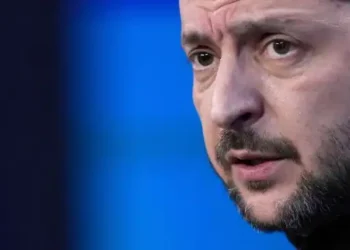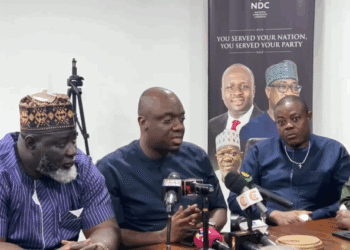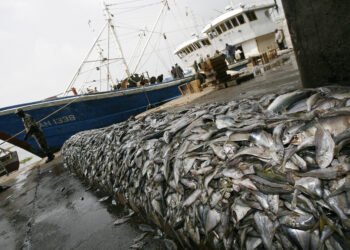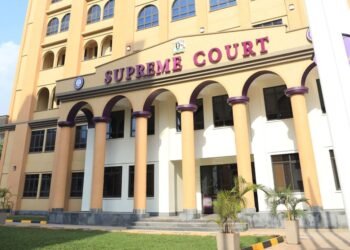The Executive Director of the Center for Environmental Management and Sustainable Energy (CEMSE), Benjamin Nsiah, has urged the government to adopt a comprehensive and data-driven approach in addressing persistent increases in public transportation fares.
According to him, the conversation on fare adjustments should not be limited to isolated factors such as spare parts or fuel prices, but must consider a broad range of economic, operational, and welfare-related indicators affecting commercial transport operators.
Speaking on the matter, Mr. Nsiah emphasised the need to establish a clear framework of indices that influence fare changes.
“We have to look at the interest rates these drivers face when procuring vehicles, the duties they pay at the port, their salaries, welfare benefits, insurance packages for workers and their families, and the overall maintenance costs. All of these factors collectively impact their ability to operate.”
Benjamin Nsiah, Executive Director of the Center for Environmental Management and Sustainable Energy
He noted that although recent economic reports indicate a decline in inflation, this does not necessarily mean that prices of goods and services have fallen. Instead, it simply means that the rate of price increases has slowed compared to the same period last year.
“Inflation being down doesn’t mean the cost of goods is down. It just means that, comparatively, the way we were expecting the cost of goods to be high is not as high as before.”
Benjamin Nsiah, Executive Director of the Center for Environmental Management and Sustainable Energy
Mr. Nsiah stressed that, beyond inflation, the high interest rates on loans for vehicle purchases are a significant burden for operators. He argued that when drivers or transport companies take loans at high interest rates to acquire vehicles, the repayment costs inevitably feed into fare adjustments.

“If they are procuring vehicles at higher interest rates, who pays these interests for them?” he asked, calling for a thorough national discussion on how such costs are absorbed.
A holistic Evaluation of all Relevant Factors
In his view, government policy must be shaped by a holistic evaluation of all relevant factors—ranging from inflation and interest rates to import duties, fuel prices, spare parts costs, garage and maintenance expenses, and other operational needs.
He suggested that each factor could be assigned a weighted value within a transport pricing framework, enabling a systematic review at regular intervals.
“After allocating percentages to these indicators, then we determine that every quarter, or every six months, or every year, we review them to see if the changes benefit the transport operators or the commuters.
“If the indicators show the operators are under strain, we can increase fares. If they show that conditions are better for commuters, then fares should be reviewed downwards.”
Benjamin Nsiah, Executive Director of the Center for Environmental Management and Sustainable Energy
Importantly, Mr. Nsiah highlighted that such a model should apply not only to passenger transport but also to cargo services, including those transporting goods from hinterlands to markets or from ports to other parts of the country. “We must look at it from all angles, not only commuters,” he said.

He expressed concern over the lack of institutional capacity to conduct the necessary research that would underpin such a framework.
“One unfortunate thing is that we’ve not equipped the National Road Safety Authority to embark on this kind of research. The Ministry of Transport has not been a research and development-oriented ministry, and for that matter, there is a lack of data for policy formulation in the transport sector.”
Benjamin Nsiah, Executive Director of the Center for Environmental Management and Sustainable Energy
Call for Comprehensive Research Framework
To address this gap, Mr. Nsiah recommended that the Ministry of Transport develop a comprehensive research framework. He explained that such a framework would produce reliable data to guide the formulation of transport pricing policies and ensure that decisions are evidence-based.
He also drew attention to the welfare of transport workers, pointing to findings from the Ghana Living Standards Survey (GLSS) conducted in 2015 and published in 2017, which indicated that about 114,000 Ghanaians were engaged in commercial transport operations at the time.
Alarmingly, their average annual salary was below GHS 6,000, translating to between GHS 500 and GHS 600 per month.“Who survives in Greater Accra with GHS 600 a month?” Mr. Nsiah asked.
He argued that the low earnings highlight the need for government to take a keen interest in improving the living standards of commercial transport workers, many of whom face challenging and often hazardous working conditions.
For him, the solution lies in designing a “transport model” or “transport framework” that integrates all these variables and uses them to guide fare adjustments in a transparent and predictable manner.

This would, in his view, enhance regulation of the sector, improve worker welfare, and promote fairness for both operators and commuters.
Mr. Nsiah concluded by stating that improving the transport sector is not simply a matter of lowering fares for the public. Rather, it requires balancing the needs of operators, who bear significant operational costs, with those of commuters, who are already feeling the effects of rising living expenses.
“If it were easy, the government would have gone into the transport business itself. It’s not easy, and that’s why the government is not doing it. But to improve their standard of living, it must be a concern of the government.”
Benjamin Nsiah, Executive Director of the Center for Environmental Management and Sustainable Energy
By institutionalising a periodic review process based on agreed indicators, he believes Ghana can move toward a more sustainable and equitable transport fare system—one that not only responds to economic realities but also safeguards the livelihoods of the thousands of Ghanaians whose work keeps the nation moving.
READ ALSO: Illegal Mining Puts Ghana’s Gas Infrastructure at Risk – IMANI



















